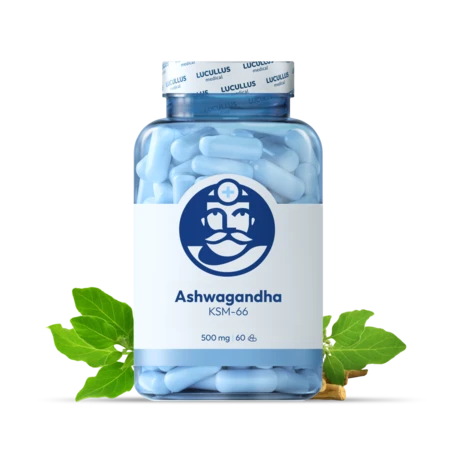
The First of Vitamins - B1
Maybe it's burnout ... that's the current description of the state when we feel different. When the coffee we loved no longer works and in the afternoon we are overwhelmed by unbearable fatigue, when in the evening we have no strength for anything, neither for sports nor for friends. And certainly not for another day at work. A nutritionist would describe this state with further findings of our diet with the words - „ You have a lack of thiamine (B1), which is essential for the proper functioning of the nervous system and the conversion of food into energy. Your diet is full of processed carbohydrates, but almost without B1. And when the body doesn't have enough thiamine, you can feel fatigue, forgetfulness, irritability, and even anxiety. And caffeine? It depletes thiamine in the body even more!“ We certainly wouldn't think that this state could be caused by a “triviality”. After all, many of us don't register thiamine, I admit it was also my case. This first of the discovered vitamins in 1912 was named by the Polish biochemist Funk with the term vita (necessary for life), amine (substances that contain nitrogen). Since then, it has gained more names, like aneurin, and for 25 years we have called it thiamine. It is essential, meaning it cannot be synthesized and must come from the diet. It sounds almost frightening that without it we wouldn't survive longer than a few days, at most weeks. This is because the body cannot store it for long and it is necessary to ensure its intake regularly, as it is irreplaceable for the proper functioning of the organism. On the contrary, its abundance helps improve concentration and memory.

With a tremendous impact on the psyche, it helps to alleviate stress, nervousness, and supports a good mood. That's why it earned the nickname „vitamin of morale“ and „ anti-stress vitamin“. It helps to quickly alleviate symptoms of depression and at the same time stabilize mood. Without it, cells could not effectively use glucose, which would cause fatigue and weakness. Research suggests that with sufficient intake of thiamine, we protect the brain from Alzheimer's and other neurodegenerative diseases. Vitamin B1 is important for proper nerve function, appetite stabilization, and growth support. It has several benefits, including increasing energy production. Thiamine is involved in the basic functions of cells and the breakdown of nutrients into energy, a deficiency can lead to various problems in the brain and heart, which require a constant supply of energy. People with high physical activity need it in sufficient quantities because their body burns more carbohydrates for energy. Impaired endurance and muscle weakness are precisely the result if there is little B1. Even alcohol disrupts its absorption and increases its excretion. Thiamine is key to the production of acetylcholine, an element that helps our body transmit messages between nerves and muscles. Without this communication, our heart would not function as it should, because it helps maintain normal rhythm and function of the heart muscle. From which it follows that it minimizes the risk of heart diseases. The best sources of thiamine are whole grains and bread, pork, fish, yeast, beans, peas, soy, sunflower seeds. But here too is an important fact that heat treatment and food processing reduce the content of thiamine, so it is advisable to consume raw or minimally processed foods. Since the body cannot store large reserves of thiamine, its deficiency can quickly manifest in various health problems. The most common symptoms include fatigue and irritability, loss of appetite, muscle weakness and headaches, problems with concentration and memory, cardiovascular disorders. Risk groups are especially people with excessive alcohol consumption, diabetics, and people with increased physical or mental stress. Extreme deficiency of B1 leads to the disease beri-beri, which destroys the nervous and cardiovascular systems and is characterized by exhaustion.
The intake of thiamine is associated with improved mental performance, higher energy levels, and stability of the nervous system. In addition, it contributes to better memory, reduces nervousness, and helps maintain mental balance. Let's not underestimate the power of vitamins. Our bodies cannot create all vitamins sufficiently, we are exposed to negative environmental influences daily. Chemical substances in food (fertilizers, preservatives, flavorings, colorings), polluted air and water, but also alcohol, drugs, and stress, all increase their need. Vitamin B1 is the key to a good mood, strong memory, strong body, and doesn't forget our heart. Make sure to have its regular intake and enjoy more energy every day, from morning till evening.
With Dr. Lucullus and B1, you can also say no to burnout.






